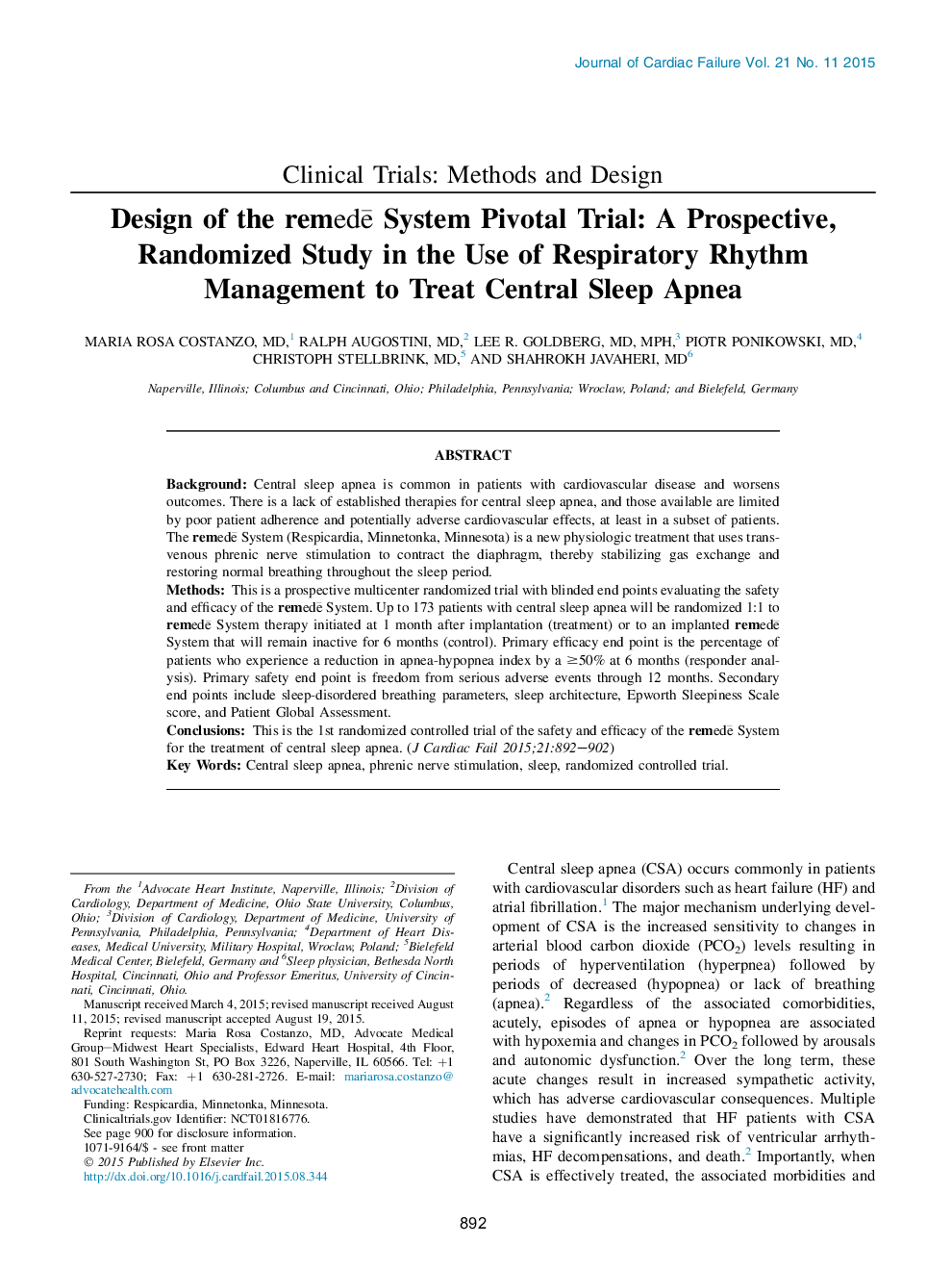| Article ID | Journal | Published Year | Pages | File Type |
|---|---|---|---|---|
| 2958948 | Journal of Cardiac Failure | 2015 | 11 Pages |
BackgroundCentral sleep apnea is common in patients with cardiovascular disease and worsens outcomes. There is a lack of established therapies for central sleep apnea, and those available are limited by poor patient adherence and potentially adverse cardiovascular effects, at least in a subset of patients. The remedē System (Respicardia, Minnetonka, Minnesota) is a new physiologic treatment that uses transvenous phrenic nerve stimulation to contract the diaphragm, thereby stabilizing gas exchange and restoring normal breathing throughout the sleep period.MethodsThis is a prospective multicenter randomized trial with blinded end points evaluating the safety and efficacy of the remedē System. Up to 173 patients with central sleep apnea will be randomized 1:1 to remedē System therapy initiated at 1 month after implantation (treatment) or to an implanted remedē System that will remain inactive for 6 months (control). Primary efficacy end point is the percentage of patients who experience a reduction in apnea-hypopnea index by a ≥50% at 6 months (responder analysis). Primary safety end point is freedom from serious adverse events through 12 months. Secondary end points include sleep-disordered breathing parameters, sleep architecture, Epworth Sleepiness Scale score, and Patient Global Assessment.ConclusionsThis is the 1st randomized controlled trial of the safety and efficacy of the remedē System for the treatment of central sleep apnea.
